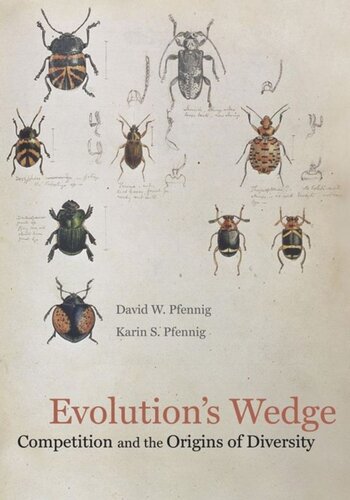

Most ebook files are in PDF format, so you can easily read them using various software such as Foxit Reader or directly on the Google Chrome browser.
Some ebook files are released by publishers in other formats such as .awz, .mobi, .epub, .fb2, etc. You may need to install specific software to read these formats on mobile/PC, such as Calibre.
Please read the tutorial at this link: https://ebookbell.com/faq
We offer FREE conversion to the popular formats you request; however, this may take some time. Therefore, right after payment, please email us, and we will try to provide the service as quickly as possible.
For some exceptional file formats or broken links (if any), please refrain from opening any disputes. Instead, email us first, and we will try to assist within a maximum of 6 hours.
EbookBell Team

4.1
80 reviewsEvolutionary biology has long sought to explain how new traits and new species arise. Darwin maintained that competition is key to understanding this biodiversity and held that selection acting to minimize competition causes competitors to become increasingly different, thereby promoting new traits and new species. Despite Darwin’s emphasis, competition’s role in diversification remains controversial and largely underappreciated.
In their synthetic and provocative book, evolutionary ecologists David and Karin Pfennig explore competition's role in generating and maintaining biodiversity. The authors discuss how selection can lessen resource competition or costly reproductive interactions by promoting trait evolution through a process known as character displacement. They further describe character displacement’s underlying genetic and developmental mechanisms. The authors then consider character displacement’s myriad downstream effects, ranging from shaping ecological communities to promoting new traits and new species and even fueling large-scale evolutionary trends. Drawing on numerous studies from natural populations, and written for a broad audience, Evolution’s Wedge seeks to inspire future research into character displacement’s many implications for ecology and evolution.